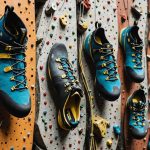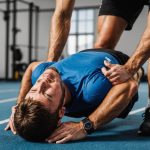The Importance of Hydration for Endurance Riding
The significance of hydration in endurance riding cannot be overstated, as it plays a crucial role in maintaining both equine and rider performance. Proper fluid balance is not only essential for sustaining stamina but also for ensuring overall endurance riding health. Research indicates that dehydration can severely compromise performance. It leads to quicker fatigue, reduced concentration, and even increases the risk of injury. Thus, mastering the art of hydration is key to success in endurance riding.
Scientific studies reveal the detrimental effects of dehydration on stamina and health. For instance, a dehydrated horse may struggle to maintain pace, while a rider faces increased vulnerability to heat stress and electrolyte imbalance. Fluid loss must be addressed strategically before, during, and after rides.
Additional reading : Mastering pre-race nerves: proven strategies for competitive runners to find calm before the race
Testimonials from seasoned riders emphasize the importance of disciplined hydration strategies. Riders and their horses often report improved vigor and sustained performance when they adhere to recommended hydration practices. These strategies may include calculated water intake and electrolyte use, helping maintain optimal fluid levels. Endurance riding health significantly benefits from robust hydration strategies, making them indispensable for both seasoned and novice riders.
Advanced Hydration Techniques for Riders
Hydration strategies are crucial for ensuring peak rider performance. Pre-ride hydration techniques include consuming adequate fluids and electrolytes several hours before starting to maximise hydration status. This approach fosters an ideal electrolyte balance, crucial for reducing fatigue and improving stamina on the trail.
This might interest you : Essential tips for choosing the ideal climbing shoes for competitive rock climbing
During the ride, maintaining hydration requires strategic electrolyte management. Riders can benefit from electrolyte tablets or drinks specifically designed for endurance sports, as they help sustain energy levels and prevent dehydration. Sipping small amounts of water frequently rather than gulping large volumes at once is a common practice among seasoned competitors to maintain consistent fluid intake.
Post-ride, replenishing lost fluids and electrolytes is pivotal. Innovative products like hydration backpacks, which allow for hands-free drinking, provide practical solutions for maintaining hydration levels during rides. Moreover, the development of specialised oral rehydration solutions aids in quickly restoring electrolyte balance after intense physical activity.
In summary, implementing effective hydration strategies before, during, and after the ride is essential for improving performance, preventing injuries, and promoting overall well-being. These advanced techniques provide riders with the tools necessary to tackle endurance rides successfully.
Hydration Needs for Endurance Horses
Understanding equine hydration is critical for maintaining the health and endurance of horses during long rides. Horses, like humans, experience fluid loss that can impact their performance. Their fluid requirements are substantial, with an average horse needing to drink between 5 to 15 gallons of water daily, depending on the intensity of the ride and environmental conditions.
Methods to evaluate hydration status include the skin pinch test and monitoring urine output. A hydrated horse will have its skin return to position quickly after being pinched and will produce light-coloured urine. Observing these indicators helps in timely hydration adjustments.
It’s crucial to provide horses with frequent access to water during rides, allowing them time to drink at their own pace. Introducing electrolytes gradually into their diet before a ride can enhance fluid absorption. Electrolyte supplements in feed or water can support the horse’s mineral balance, especially during long-distance events.
Maintaining a horse’s endurance health demands careful attention to hydration needs, ensuring they are met to prevent dehydration and maintain optimal performance. This approach fosters a reliable partnership between horse and rider, enhancing the joy and success of endurance riding.
Nutritional Factors Impacting Hydration
Hydration nutrition plays a pivotal role in supporting hydration and enhancing stamina for both riders and horses during endurance rides. It is essential to understand how diet can influence performance and fluid balance. Consuming foods rich in water content, such as fruits and vegetables, contributes significantly to fluid intake, offering an excellent source of natural hydration.
To maximise fluid absorption and optimize performance, incorporating electrolyte-rich foods and supplements into the diet can be beneficial. Ingredients like sodium, potassium, and magnesium found in specific supplements help maintain electrolyte balance. These elements enhance the body’s ability to manage fluid retention and facilitate better hydration.
Proper diet optimization does not solely focus on hydration. It also impacts overall endurance riding performance by providing sustained energy levels and reducing the risk of fatigue. A well-balanced diet, tailored to the specific needs of equine and rider athletes, can improve performance outcomes during competitive events.
In essence, the more informed choices you make regarding hydration nutrition, the more you enhance both endurance and performance, ensuring a healthier and more successful riding experience for both horse and rider.
Expert Recommendations for Hydration Management
Navigating the myriad of hydration best practices is crucial for success in endurance riding. Expert advice serves as a beacon for riders aiming to maximise their performance and safeguard their health.
Veteran riders and equine nutritionists emphasize a personalised approach to hydration management. Understanding that each horse and rider pair is unique allows tailored strategies to thrive. Recognizing the hydration significance can shift performance outcomes dramatically, making bespoke solutions a priority.
Avoiding common missteps, such as neglecting pre-ride hydration or miscalculating electrolyte balance, necessitates education. Emphasising small sips of water throughout the ride, rather than large gulps, ensures steady hydration and avoids overwhelming the body’s fluid balance systems.
Veterans suggest investing in innovative hydration products, like electrolyte-rich snacks or high-efficiency hydration packs, to streamline water intake. Incorporating feedback from scientific studies, expert strategies can mitigate risks associated with dehydration, such as fatigue and cramps.
Continuous learning, supported by recent research, refines hydration approaches. By understanding fluid balance intricacies and heeding expert tips, riders can hone their hydration tactics, enhancing both the joy and effectiveness of endurance riding.











